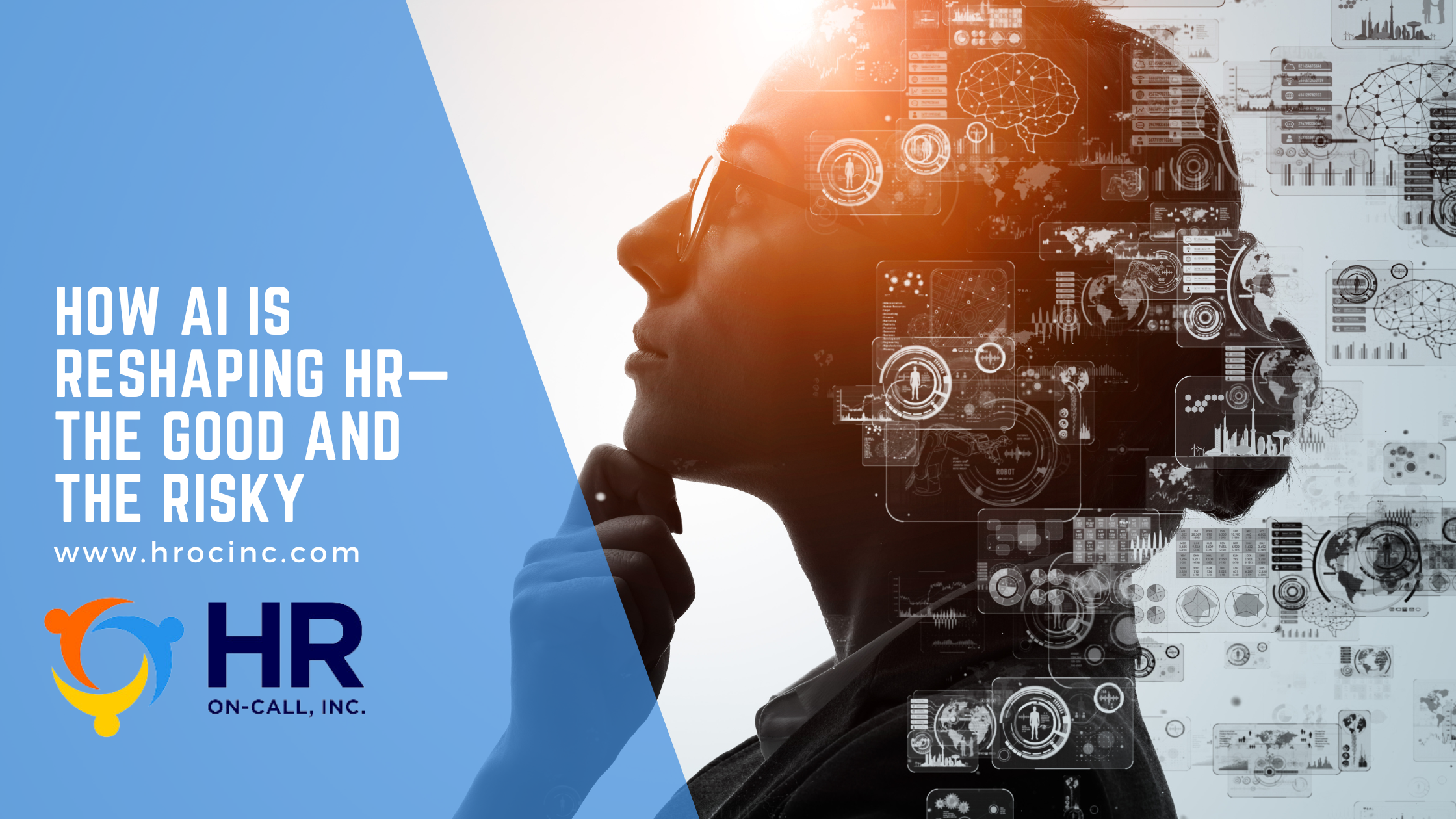Artificial intelligence (AI) isn’t just changing tech-heavy industries—it’s reshaping how businesses manage people. From recruitment to performance management, AI tools promise efficiency, insight, and personalization. But with these benefits come challenges that HR leaders can’t afford to overlook. Let’s break down both the opportunities and the risks of bringing AI into human resources.
The Good: Where AI Creates Value in HR
1. Smarter Recruiting
AI-powered platforms can scan thousands of resumes in seconds, identifying candidates who best match job descriptions. This speeds up hiring, reduces recruiter fatigue, and helps ensure qualified candidates don’t slip through the cracks.
2. Enhanced Employee Experience
Chatbots and virtual assistants now answer common HR questions—like PTO requests or benefits inquiries—24/7. This frees up HR professionals to focus on higher-value tasks while giving employees quick, reliable answers.
3. Better Insights Through Analytics
AI can process employee data to uncover patterns in turnover, engagement, and performance. For example, predictive analytics might alert HR to employees at risk of leaving, giving leaders a chance to intervene before valuable talent walks out the door.
4. Personalized Learning and Development
AI-driven platforms recommend tailored training programs for employees based on skills gaps and career goals. This ensures professional growth is aligned with both company needs and individual aspirations.
The Risky: Where HR Must Proceed With Caution
1. Bias in Algorithms
AI is only as good as the data it’s trained on. If past hiring data reflects bias, the system could replicate or even magnify those patterns, excluding diverse candidates. HR must continually audit AI tools to ensure fairness.
2. Privacy Concerns
AI often requires analyzing large amounts of employee data. Without strict safeguards, this raises serious concerns about surveillance, data misuse, and compliance with privacy laws.
3. Over-Automation
While automation increases efficiency, HR is ultimately about people. Over-relying on AI—like letting algorithms make final hiring or promotion decisions—can erode trust and remove the human judgment that’s critical in HR.
4. Legal and Ethical Challenges
As laws evolve around AI in the workplace, companies could face liability if tools are deemed discriminatory or non-compliant. Staying informed and proactive about legal requirements is essential.
Striking the Balance
AI in HR offers tremendous potential—but it must be balanced with transparency, accountability, and a human touch. The best strategy is to use AI as a tool to support HR professionals, not replace them. When applied thoughtfully, AI can make HR smarter, faster, and more personalized. When applied recklessly, it risks undermining trust, diversity, and employee well-being.
The future of HR won’t be about choosing between people or technology—it will be about creating a partnership where both can thrive.

